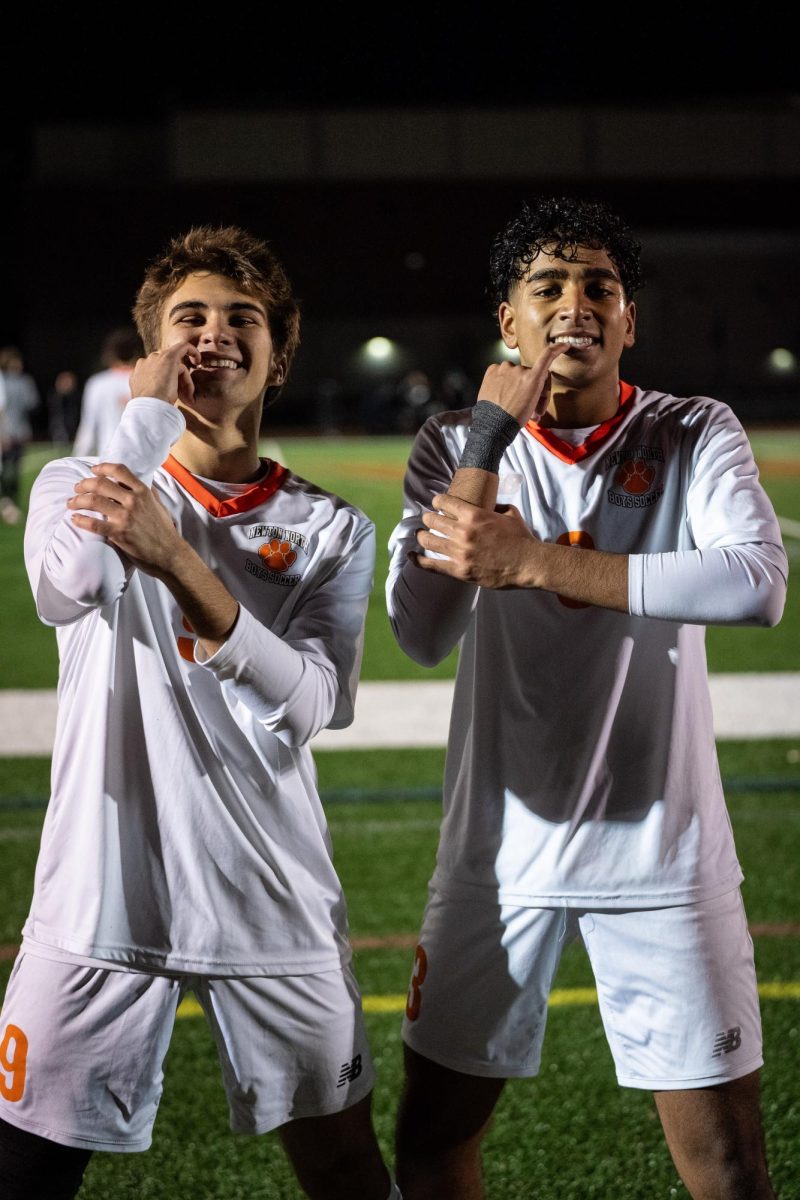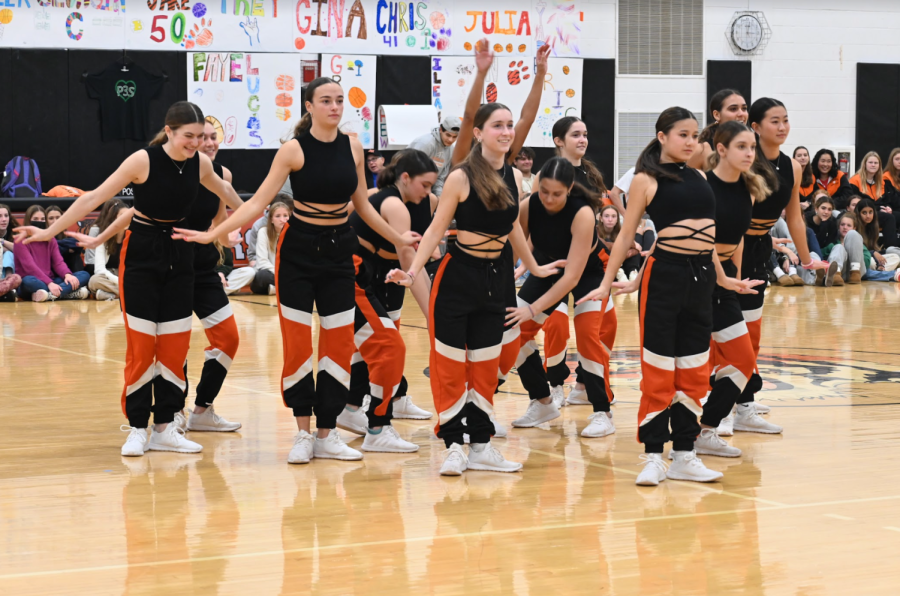B-block
by Rose Bostwick
Students in North’s EDCO Program for the Deaf and Hard of Hearing presented in the auditorium last Tuesday during B-block as part of Deaf Culture Day.
Panelists included senior Asma Sheikh, juniors DJay Araujo and Tatiana Martinez, sophomore Edwin Galatis, and freshman Mykhaylo Berezyuk, who spoke either in spoken English or American Sign Language (ASL). The ASL was interpreted through speakers for hearing members of the audience.
The panelists began by discussing misconceptions they face as members of the deaf community. They debunked many myths, such as the idea sign language is universal, if you see two deaf people having conversation in sign language, you can’t walk through it, or that all deaf people can read Braille.
To disprove the idea that “lip-reading is easy and everyone can do it,” panelists chose audience participants to play a game. The volunteers mouthed a sentence to each other in a line, and by the end of the activity proved that lip-reading is extremely difficult without practice. In fact “only about 30 percent of words are visible on the mouth,” Sheikh explained.
According to Sheikh, a common misconception is that all deaf people wish they were hearing, but this is not accurate. “I am proud to be a deaf woman,” she said. “It’s a part of who I am.”
C-Block
by Samantha Fredberg
Crystal Eusebio, a board member of DEAF inc. and assistant director for student activities at Boston University, taught students that being deaf or hard of hearing does not mean someone is less capable than a hearing person.
According to Eusebio, 75% of deaf and hard of hearing students are put in mainstream schools because of budget cuts, and the schools can not always provide a quality support system to educate these students. Eusebio was one of these many students.
Eusebio grew up in California as the only deaf person in a hearing family, so she was sent to a mainstream public school. She also switched schools many times in order to find one that fit her ASL needs. “Every year I was going from school to school, and it was a struggle for me. I didn’t have the same experiences growing up as a child who stayed at the same school,” she said.
Eusebio attended California State University, Northridge for college, and elaborated on her difficulties in education. “In some of my classes I had no interpreters because California State University, Northridge did not have the funds. In those classes I would just sit there and not know what’s going on.”
After several jobs where she felt unsatisfied, Eusebio moved to Boston and began working to help people in the deaf community get the jobs they dreamed of. “I wanted to support the deaf and hard of hearing people and help them get the jobs they wanted no matter what accommodations were needed. If someone wanted to be a pilot I would help them get there,” she said.
After summarizing her journey as an deaf adult, Eusebio closed her presentation by telling students, “If you give me the right resources, there is nothing I can’t do!”
D-block
by Emily Moss
Heather Artinian, a Harvard Law School student and the subject of the movie, Sound and Fury, spoke to students during the D-block deaf culture assembly yesterday. Artinian, who was born deaf, received a cochlear implant when she was a child in order to increase her hearing abilities.
Artinian said that as a young girl, she had difficulty making friends because she could only communicate in American Sign Language (ASL). “Every time I went outside to play with the kids … they ran away,” said Artinian. “I asked my mom, ‘How do I do this speaking thing?’”
At age nine, Artinian received a cochlear implant, and by high school, she was able to communicate with her hearing peers.
Artinian subsequently attended Georgetown University. “The first month, every day I woke up terrified,” said Artinian. “I had to explain myself to every person I met…. I cried every day and said, ‘I don’t think I can make it.’”
Despite her difficult transition, Artinian ultimately thrived at Georgetown, excelling in her classes, playing club basketball, and even starting a nonprofit to help students in high schools with low graduation rates. She was then accepted to Harvard Law School.
Even as a law student, Artinian said she has continued to face discrimination. “It hurt me to know that people question my ability because I’m deaf, even though I go to the #1 law school in the world,” said Artinian.
One professor, for example, assigned a group project and told students that they would receive extra credit for allowing Artinian on their team. However, after a conversation with the professor, Artinian managed to prove herself to her peers. “In the end, I did all the work, and the students realized I was just as good as they were,” she said.
Deaf Culture Day: Speakers present about deaf culture
May 5, 2016
0
Donate to The Newtonite
More to Discover













































